Having an above ground pool is a great way to save money, space and time. They are relatively easy to setup and you don’t need to terraform your backyard to make space for one. Above ground pools are usually smaller than normal pools and therefore require less chemicals, effectively saving you money in the long run. They are generally safer than normal pools and not only are they easy to set up, but easy to get rid of too.
But just like with normal swimming pools, above ground pools do require occasional maintenance in order to keep them from going green. It is a little easier given their size but nonetheless they should be handled with care. One aspect of above ground pools that most people seem to forget exists is the pump. Let’s take a look at what can be done to alleviate the problems that may arise when your pump is not taken care of.
The pump and filter form the heart of any swimming pool. The filter is there to clean out water as it is pumped through with the pump. It is recommended that all the water in your pool goes through the pump in an 8 hour cycle. This means that every drop should go through the filter within this time. It is recommended that you run your pump during the day, for 8 to 12 hours at a time. How long within that time period is up to you.
If you are not concerned with electricity costs and you know your pump is a more high-end model that will run well for extended periods of time, you can push it to 12 hours. If you are more electricity-savvy then 8 hours will suffice. It is also important to note that water needs to circulate throughout the perimeter of your pool. This will stop it from becoming stagnant. This also makes it harder for bacteria and algae to develop, while also moving water closer to the filter faster as opposed to having it recycle the same batch of liquid. In order to achieve the circular motion, you’ll need to adjust the eyeball jets in your inlets.
Your above ground pool filter’s job is to contain the spread of visible debris and microscopic particles. Most filters, such as sand filters are cleaned by backwashing. The correct time for this process to occur is when the pressure gauge reaches around 8 to 10lbs above normal. But this may vary by manufacturer, so make sure to read the instructions included with your filter so you know exactly what to do and when. It is also important to note that the cartridge filters have a cartridge inside that needs to be removed and cleaned. You can do this with a garden hose as the shape of the cartridges usually make this the most convenient way of cleaning them. It is recommended that you replace the cartridge every few months in order to ensure that the filter is working to its full potential.
Above ground pools with minimal circulation may stimulate algae and bacteria growth, therefore it is important to stimulate the flow of water as mentioned earlier. But this may not be possible in some of the more basic pools. What you can do instead is brush and vacuum the floor of your pool, preferably on a weekly basis.
By testing the pH levels of your pool on a weekly basis, you will begin to understand how bather load, chemical application and weather effect your pool. Testing can be done with a higher end gauge or just a regular strip reader. If these are not available, you can visit your local pool company and borrow a measuring tool. Some stores also offer testing of your pool’s vitals on their premises with their own machines. With regards to pH, the levels should not exceed 7.6 and should be higher than 7.2. If they are outside these levels, your pool chemicals will not be as effective.
Perhaps a more obvious, but still sometimes overlooked aspect of above ground pools is their walls. Lower end pools are usually made of a thinner fabric with a polycarbonate or metal frame to keep the unit intact. It is important to check your pool as often as possible for any potential leakage holes that may develop.
Lastly, there is the problem of chemicals. Many people think that chemicals are not necessary for above ground pools but they actually do have a significant effect on the health of your pool. The most common and efficient way to keep your above ground pool clean is with chlorine tablets. These tablets are compressed and as a result they dissolve slowly, effectively wiping our bacteria and keeping your pool clean.
If you want your own pool’s maintenance handled by a team of seasoned pros, then give Into The Blue Pools a call. We are Sarasota pool service experts, also servicing Bradenton, Venice and more.
